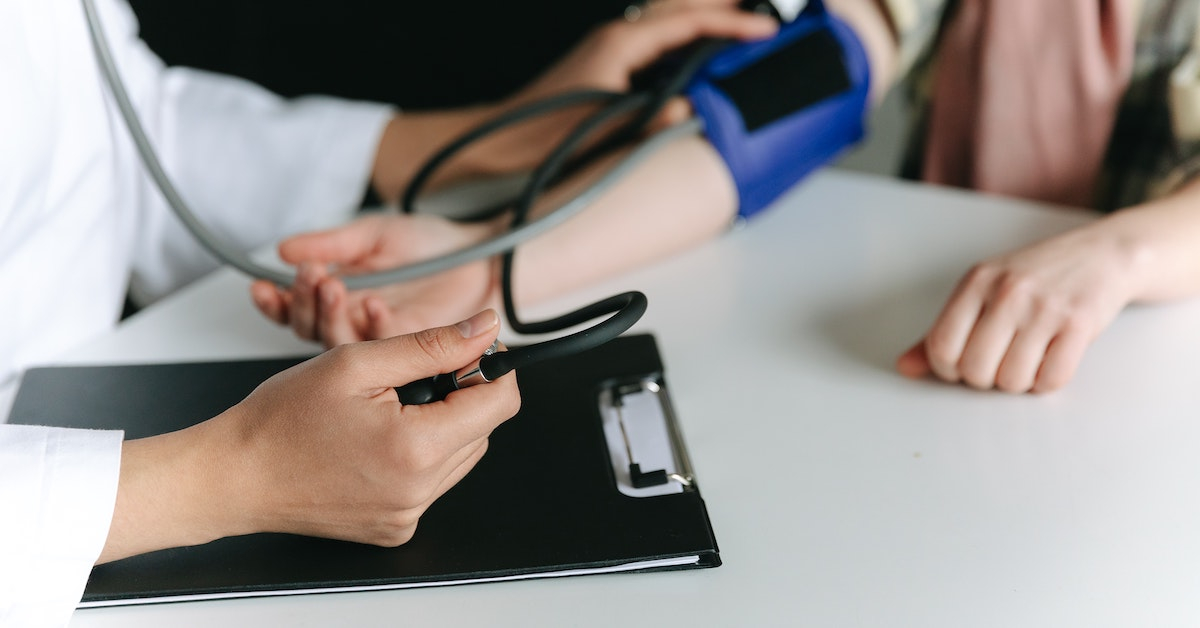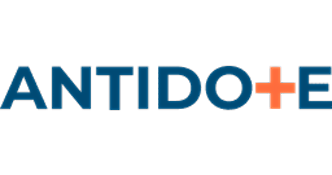This article is sponsored by one of the fastest-growing telehealth companies in America, Antidote Health.
High blood pressure, also known as hypertension, is a dangerous condition that can lead to a myriad of additional dangerous conditions. In addition to being responsible for over 7.6 million per annum deaths on its own, according to the Journal of Hypertension, high blood pressure presents a co-morbid risk for other dangerous silent killers and deadly cardiovascular conditions including stroke and heart disease.
Per the Centers For Disease Control and Prevention, these conditions are among the leading causes of death in the United States, and in 2020 alone, more than 670,000 deaths were found to be linked to hypertension as a primary or contributing cause. Furthermore, according to the aforementioned Journal of Hypertension review, around 54% of strokes and 47% of coronary heart disease cases are directly attributable to high blood pressure and hypertension.
Because this disease is such a subtle, insidious one, it’s important to stay vigilant, stay on guard, and stay on top of your health with routine doctor checkups and healthcare screenings. Even telemedicine can serve as a useful utility for preventative care; video diagnosis has been shown to accurately match the results of in-person diagnoses at least 87% of the time.
But whether you seek to address high blood pressure issues through traditional medicine, telemedicine, or through implementing both resources in tandem, you shouldn’t let yourself be sidetracked by misinformation or misconceptions.
Below are some frequently asked questions (and answers) regarding the condition of hypertension, and its complicated relationship with other conditions.
Is Dizziness A Sign Of High Blood Pressure?
According to the American Heart Association, dizziness falls under the umbrella of an “inconclusively related” symptom with regard to hypertension or high blood pressure, along with facial flushing and blood spots in the eyes. While some dizziness may sometimes come about as a reaction to certain high blood pressure medications, dizziness is not a direct consequence of high blood pressure.
However, dizziness and loss of coordination can still be symptomatic of stroke, so if you’re experiencing strange, inexplicable lightheadedness throughout the day, it would still be wise to consult a doctor about it, even if there’s no direct relation to hypertension. They may be able to suggest a better prescription to switch to or help you identify the root cause of the problem.
What Is Orthostatic Hypotension?
Whereas hypertension refers to exceedingly high blood pressure, orthostatic hypotension specifically refers to blood pressure drastically lowering as one changes from sitting or lying down to standing upright. This reaction may occur as a byproduct of taking certain medications, and in its most severe cases, can lead to further complications like:
- Nausea and Lightheadedness
- Fall Injuries
- Shock and Organ Failure
- Chest Pains
- Migraine Headaches
- Cardiovascular Disease
- Fatigue and Fainting
- Heart Palpitations
- Shortness of Breath
Fortunately, most cases of orthostatic hypotension can be very manageable and treatable, provided your healthcare provider is able to identify the root cause or condition that’s triggering the orthostatic hypotension. It’s usually very treatable after the initial root cause is identified, and orthostatic hypotension can usually be managed or prevented through simple key steps like:
- Staying cool and staying hydrated throughout the day
- Wearing compression stockings to support blood circulation
- Not sleeping in a flat position and elevating your head with pillows
- Actively moving your muscles in preparation for standing.
Medication is very rarely required in the treatment of orthostatic hypotension, but if your primary care provider believes it’s necessary, then they’ll most likely recommend one or more of the following drugs to raise your blood pressure:
- Fludrocortisone
- Droxidopa
- Erythropoiesis-stimulating agents
- Pyridostigmine
- Midodrine hydrochloride
But hypertension or hypotension, what is blood pressure’s relationship with another prevalent silent killer; COVID-19?
High Blood Pressure And COVID?
High blood pressure is a huge risk factor for developing a severe case of COVID-19. According to a recent study in the American Heart Association-published journal Hypertension, high blood pressure may potentially double the risk of developing a severe COVID-19 case, even after a person’s received a full vaccination and booster injection.
It’s a vicious cycle, with both of these harmful conditions potentially feeding into one another. As the National Heart, Lung, And Blood Institute noted earlier this year, the collective average national blood pressure experienced a small, but noticeable increase over the course of the COVID-19 pandemic.
Whether you’re struggling with one or both of these conditions, it’s smart to address both of them head-on with the help of a trusted primary care physician. Blood pressure issues also have a direct impact on the organs responsible for processing 20-25 percent of your body’s cardiac output (StatPearls): your kidneys.
How Hypertension Affects Kidneys?
In the long term, hypertension and high blood pressure have been shown to weaken and harden the renal arteries of the kidneys to an unhealthy degree. Like the interplay between hypertension and COVID, this can play into a vicious, self-reinforcing cycle.
Kidneys damaged by high blood pressure fail to filter blood well, and in turn, damaged kidneys can fail to adequately, and healthily regulate blood pressure. According to the American Heart Association, high blood pressure lends a pretty heavy hand in renal health issues, to the point that it’s ranked as the second leading cause of kidney failure.
Will High Blood Pressure Make You Tired?
Both high blood pressure and the medications used to treat high blood pressure have been linked to increased tiredness, fatigue, and drowsiness. Conversely, insomnia and sleep deprivation have been shown to potentially correlate with a higher risk of high blood pressure on occasion. (Read this Mayo Clinic article for more information.)
While this doesn’t occur in all cases of hypertension or high blood pressure, it can be an occasional byproduct of both hypertension and medications used to treat high blood pressure. If you’re experiencing any chronic sleep disorder, linked to hypertension or not, it would be wise to consult your primary care physician for further information, advice, and support.
High Blood Pressure And Pregnancy?
Beyond affecting a pregnant person, issues with high blood pressure and hypertension can have a direct impact on the health of the fetus they’re carrying. March Of Dimes estimates that roughly 8 in 100 expecting people (nearly 1 in 10) deal with some sort of high blood pressure during their pregnancy.
High blood pressure can be an especially problematic condition to experience during pregnancy as it’s been associated with a number of pregnancy complications, including potentially life-threatening ones, such as:
- Postpartum hemorrhage
- Stroke or heart failure
- Preeclampsia
- Kidney failure
- Pulmonary edema
- Gestational diabetes
- Placental abruption
- Pregnancy-related death
Hypertension can also increase the risk of health complications for the baby, including growth restriction, premature birth, lowered birth weight, and even death, both in the fetal and postnatal stages. If you’re experiencing any hypertension-related health concerns, pregnancy-related or not, you shouldn’t hesitate to let your primary care physician know about them.
Will Hypertension Go Away?
Unfortunately, hypertension is a chronic condition, meaning that it’s not curable. That being said, with the right medication, preventative practices, and treatment regimen, it can be a very manageable condition. You need to be proactive, practice the proper preventative precautions, and routinely stay on top of your wellness.
Managing your own wellness is, after all, a lifelong process. You may need medication to manage your blood pressure, but small, simple steps can do a lot to make a positive difference, proactive practices like:
- Eating a healthy diet
- Watching your weight
- Limiting alcohol consumption
- Reducing your salt intake
- Moderating stress levels
- Getting healthy sleep
- Monitoring blood pressure
One affordable, wholly accessible way you can begin to gain further control of your wellness is through telemedicine. One of the leading affordable providers at the forefront of offering cutting-edge care is Antidote Health. Antidote enables patients to further democratize care for themselves and their loved ones.
Antidote affords them extra control over their medical documents, the freedom to attain more affordable deals at the pharmacy, and access to online doctors, pharmacists, and therapists, whenever they need them, no matter how insured or uninsured they are.
Find out more about Antidote Health by reading our provider review, and if you like what they have to offer, you can get started with $10 off your first consultation using promo code: RELIEFSEEKER.


